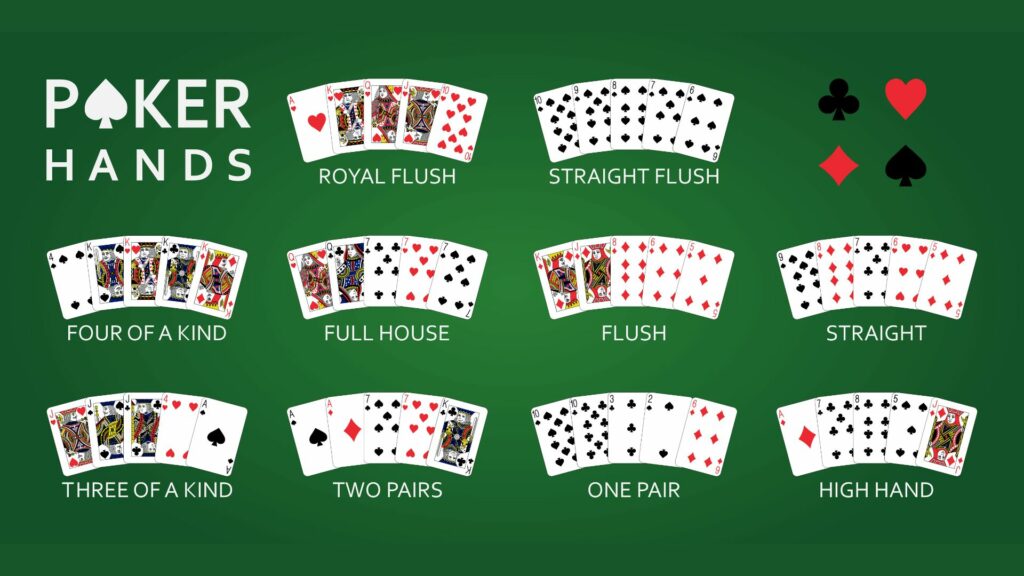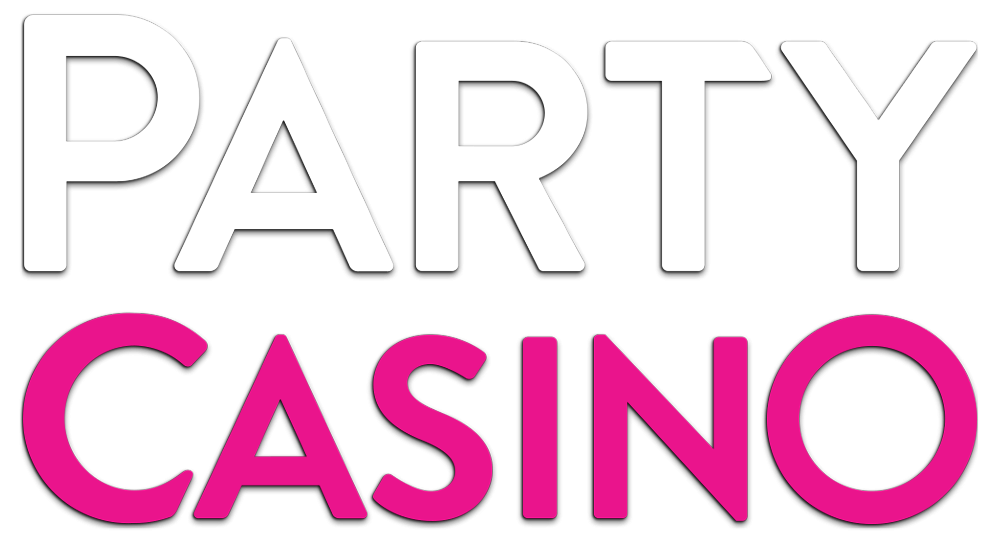Texas Hold’em Poker is the most popular game of poker established both on land and online all over the world. Fusing strategy, psychology, and luck, Texas Hold’em will offer you an exciting and competitive gaming experience. Exclusive of your level, playing Texas Hold’em online lets you play different stakes, tournaments, and live dealer options.
In this guide, we will cover everything about Texas Hold’em, from the basic rules and betting options to advanced strategies and the best online platforms for playing. If you’re ready to improve your poker game and boost your winning chances, read on!
Best Casinos To Play Texas Hold’em Poker
What is Texas Hold’em Poker?
Texas Hold’em is known as a board game in which players compete to collect the best cards and form a five-card poker hand. It is played with 52 cards and is possible to have 2-10 players at a table. The game consists of several betting rounds and the purpose is to win the chips or money by having the best hand or forcing opponents to fold.
The game has picked up a massive following thanks to its participation in high-stakes competitions like the World Series of Poker (WSOP) and gambling platforms, which offer both real-money games and free play.

Types of Texas Hold’em Poker
There are various varieties of Texas Hold’em, and each one offers a distinct gaming experience:
- No-Limit Texas Hold’em: It is the most often played variation of Texas Hold’em and allows players to wager any number of chips at any one moment.
- Limit Texas Hold’em: This variation is less aggressive but more strategic because betting is limited to set quantities.
- Pot Limit Texas Hold’em: The highest wager is limited to the pot’s current size.
- Tournament Texas Hold’em: Texas Hold’em tournaments are organized events where players vie for chips and rank advancement.
- Cash Games: These allow players to enter for a predetermined sum and withdraw their winnings whenever they choose.
How to Play Texas Hold’em Online
Texas Hold’em is a well-organized gameplay with discrete stages. This is how it operates
Fundamental Guidelines:
The Setup:
- Two private cards, sometimes known as hole cards, are dealt to each player.
- During several rounds, five community cards are arranged on the table face-up.
- The goal is to use any combination of hole and community cards to form the best five-card hand.
Rounds of Betting
- Pre-Flop: After receiving hole cards, players can choose to fold, raise, or call.
- Flop: After the revelation of three communal cards, there is another betting round.
- Turn: Another round of betting starts after the fourth communal card is dealt.
- River: The last betting round begins when the last community card is revealed.
- Showdown: The best hand wins the pot when players disclose their hands.
Hand Rankings
- Royal Flush: A, K, Q, J, 10 of the same suit.
- Straight Flush: Five consecutive cards of the same suit.
- Four of a Kind: Four cards of the same rank.
- Full House: Three of a kind and a pair.
- Flush: Five cards of the same suit, not in sequence.
- Straight: Five consecutive cards of different suits.
- Three of a Kind: Three cards of the same rank.
- Two Pair: Two sets of matching ranks.
- One Pair: Two matching cards.
- High Card: The highest card in hand if no other combinations are made.
Betting Options in Texas Hold’em
Players have several betting choices during a hand:
- Check: Pass the action without betting.
- Bet: Place chips into the pot.
- Call: Match another player’s bet.
- Raise: Increase the bet amount.
- Fold: Give up the hand and forfeit chips already bet.
Tips & Strategies for Playing Texas Hold’em Online
Although Texas Hold’em is a game of chance, using the appropriate methods can greatly increase your odds of winning. Here are some important pointers:
- Selecting the Correct Starting Hands: It’s very important to play the correct starting hands. While poor cards should be folded early, strong hands like pocket Aces (AA), Kings (KK), and Queens (QQ) should be played aggressively. Steer clear of playing too many marginal hands since they frequently result in challenging post-flop choices.
- Position Matters: Your decision-making is influenced by where you sit at the table. Being in a late position gives you a strategic edge because it enables you to observe other players’ moves before taking action. Because they act first and have less knowledge, players in an early position should play tighter.
- Bluffing Sensibly: Bluffing is a useful tactic, but it should only be employed sparingly. While under-bluffing makes you too passive, over-bluffing might make you predictable. Before attempting a bluff, take into account the texture of the board and the patterns of your opponent.
- Bankroll Management: Establish and adhere to a spending limit for your poker sessions. To tolerate unavoidable losses, manage your cash and refrain from making rash bets. The 5% rule states that many profitable players never stake more than 5% of their bankroll on a single game.
- Recognizing Opponent Behavior: Examine the playing methods of your rivals. While some players are more cautious, others are aggressive. Adapt your approach accordingly. To forecast their hand strength, look for trends in their betting behavior.
- Learn Pot Odds & Anticipated Value: You may make more informed decisions about whether to call, raise, or fold by being aware of how to compute pot odds and anticipated value (EV). It is a profitable call if the pot odds are higher than the chances of finishing your hand.
- Steer Clear of Playing Too Many Hands: This can result in losses. Don’t chase unlikely draws; instead, be selective and fold weak hands. The best strategy is frequently tight-aggressive play.
- Remain Patient and Focused: Playing poker calls for both of these qualities. Steer clear of distractions and don’t let your feelings control how you play. You may keep your mind clear by taking breaks.
- Adapt Your Strategy Depending on Stack Size: Whether you have a deep or small stack will affect your approach. While deep stacks allow for greater strategic maneuvering, short stacks should play more aggressively.
- Find inferior Opponents: Try to look for players who play too many hands or use cliched tactics to take advantage of them. By modifying your play to capitalize on their errors, you can target them.

Free Play Texas Hold’em – Try Before Betting
Texas Hold’em is available in free-play variants on the majority of online poker sites, enabling players to practice without taking any financial risks. Free play has the following advantages:
- Gaining knowledge about game mechanics.
- Experimenting with various tactics.
- Developing self-assurance prior to gambling for actual money.
Without requiring actual bets, live dealer poker games also provide a genuine experience.
FAQ
Is it legal to play Texas Hold’em Poker online?
In a lot of places, Texas Hold’em is legal. Before you play, make sure you are aware of the gambling laws in your area.
Is Texas Hold’em Fair Online?
Random Number Generators (RNGs) are used by authorized poker sites to guarantee fair play.
Can I Use a Mobile Device to Play Texas Hold’em?
Yes, the majority of online poker sites include mobile-friendly versions that work on tablets and smartphones.
In Texas Hold’em, what is the best-starting hand?
The greatest beginning hand is pocket aces (AA).
How Can I Get Better at Poker?
Review your play to find errors, study poker strategy manuals, and practice frequently.
What is a buy-in for a poker tournament?
The cost to enter a poker tournament is known as the buy-in. It adds to the prize pool and establishes the initial chip stack.
Is It Free to Play Texas Hold’em?
Indeed, a lot of online poker sites provide Texas Hold’em games that are free to play so you may get experience without having to risk any real money.
In poker, what is a Bad Beat?
When an opponent hits an unusual draw on the final card and defeats a player with a solid hand, it’s referred to as a terrible beat.
Bonuses for New Players at Online Poker Sites
Numerous bonuses are available on online poker sites, such as:
- Welcome Bonus: Offers for new gamers to match their deposits.
- No-Deposit Bonus: Free money or chips that don’t need to be deposited.
- Cashback Bonus: A bonus that is given back as a proportion of losses.
- Freeroll tournaments are open to all players and offer real money rewards.
Before claiming bonuses, always make sure to review the wagering conditions.
Responsible Gambling
Although Texas Hold’em is an interesting game, it is responsible gambling that is essential. Set up betting limits, take intervals, and do not follow the losses. If the gambling activity becomes problematic, get assistance from GamCare or BeGambleAware organizations.
Conclusion
Texas Hold’em Poker is the ultimate game of skill, strategy, and luck. It has a variety of online and live dealer options, making it fun for students of all skill levels. To master the game, you need to understand the rules, strategies, and tips, of Texas Hold’em Poker, and then you will be able to go to the casino and play!































